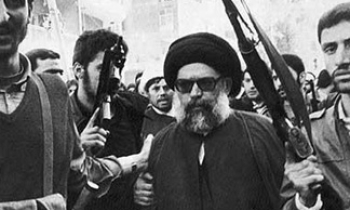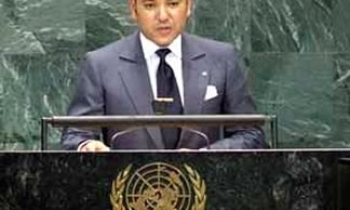A Russian journalist has ben convicted of provoking racial hatred for publishing articles by Chechen rebel leaders calling for an end to the Chechen war. Stanislav Dmitrievsky, head of the Russian-Chechen Friendship Society and editor of the Pravozashchita publication, received a two-year suspended sentence in the case on January 3.

The case has been described by media activists as a test for freedom of speech in the country, and human rights groups have called the guilty verdict a blow to the development of civil society, Reuters reported.
In 2004, Dmitrievsky published statements by Chechen rebel leaders Aslan Maskhadov – shot dead in March 2005 – and Akhmed Zakayev calling on Russians not to re-elect President Vladimir Putin and appealing for the war to be recognised as genocide. The 5,000-circulation monthly was distributed in the North Caucasus and several other Russian cities before it ceased publishing in September 2005 for financial reasons.
Dmitrievsky, who read a poem by a dissident Soviet poet to close his final statement, said the ruling was politically motivated and that he would appeal the verdict by the court in Nizhny Novgorod, a court on the Volga river east of Moscow. "(It shows) the negative characteristics of Putin's regime and its politics in the North Caucasus," the Regnum news agency quoted him as saying.
The verdict came amid concern over the future of independent non-governmental organisations (NGOs) in Russia, following a law that was approved by Putin last month that introduced strict curbs on foreign financing and organisations' independence. Dmitrievsky's conviction came the same week that the Russian Ministry of Internal Affairs closed the Russian PEN Center, an NGO that advocates for freedom of expression, and froze its bank account on charges that it failed to pay property taxes. On January 27 a Moscow arbitration court ruled that Russian PEN Center owed the equivalent of $150,000 in back taxes for the office it rents.
Dmitrievsky was charged under Article 282 of the Russian Criminal Code of actions intended to foment hatred or enmity on grounds of race or nationality. In sentencing Dmitriyevsky, the judge said that the appeals, which were taken from the as pro-separatist Chechen Press website, contained passages intended to foment racial, national, and social discord, according to Radio Free Europe / Radio Liberty (RFE/RL).
The Russian-Chechen Friendship Society, based in Nizhny Novgorod, publishes a monthly newspaper, Rights Defence, that is one of the few sources of information on the conflict in Chechnya, especially on abuses by Russian forces there. The society relies on a network of correspondents there and elsewhere in the turbulent North Caucasus, some of whom have disappeared under mysterious circumstances.

The criminal case entangled, at least indirectly, the United States, which had given the group $170,000 since 2001 through the National Endowment for Democracy. The European Union and Norway have also provided grants to support the group's reporting on the Chechen conflict, the New York Times reported.
Dmitriyevsky's group has been targeted by tax and justice authorities. Tax inspectors claim the foreign grants it is receiving amount to profit and accuse it of tax evasion. Justice officials are seeking to close down the group, arguing it has failed to provide registration materials for inspection. Dmitriyevsky has denied all the charges.
"This verdict is yet another confirmation of the taboo about Chechnya, which no one may discuss freely without being accused of expressing extremist opinions," Reporters sans Frontières (RSF) said. "Only information coming out of Moscow may be used to mention this region, where all independent information is excluded." RSF said: "Dmitrievsky was convicted as an example, simply because he published statements by former Chechen leaders and for once allowed Russian citizens to hear an alternative to the Kremlin’s views. We voice our solidarity with Dmitrievsky and we call for this conviction to be quashed on appeal."
"We condemn the politicized verdict against Dmitriyevsky and call on the Russian courts to overturn it," Committee to Protect Journalists (CPJ) Executive Director Ann Cooper said. "Today's (Friday) sentence sends the alarming message to journalists that the Kremlin will not tolerate independent news reporting on the war in Chechnya."
Rights activists say the curbs were the logical next step in policies conducted by Putin's Kremlin since he was elected in 2000 to bring all opponents under his control.
"The state's case against Dmitrievsky was politically motivated and he should be exonerated," said Holly Cartner, Europe and Central Asia director at Human Rights Watch. "Freedom of speech is in real jeopardy in Russia, and the Dmitrievsky case sends an unmistakable message to journalists and human rights defenders throughout Russia, that they too could be prosecuted for doing their job."
"This conviction signals a serious setback for freedom of expression and all human rights in Russia," said Maureen Byrnes, Executive Director of Human Rights First. "Not only will it have serious consequences for Dmitrievsky and his organisation, but it sends the message to journalists, human rights activists, and other independent critics of Russia’s government that they may be prosecuted for what they say. It will have a chilling effect on open debate," Byrnes said in a statement.

Aleksandr Podrabinek, a former dissident and head of the Prima news agency, which reports on human rights abuses, mostly in the former Soviet Union, spoke to RFE/RL shortly after the trial had ended. "This is yet another defeat for Russian justice and perhaps the most powerful attack in recent years on freedom of speech and freedom of the press in Russia," Podrabinek said. "The sentence is clearly politically motivated. In my opinion, Dmitriyevsky is a man who deserves public gratitude not a conviction."
Aaron Rhodes, executive director of the Vienna-based International Helsinki Federation for Human Rights, said it created a climate of intimidation aimed at silencing activists critical of President Vladimir Putin. "Generally speaking, it is a signal that human rights activity is dangerous, and if you have concerns about the future, you'd better stay away from it," he told the Associated Press by telephone from Vienna.
"Amnesty International considers that the conviction ... is a blow to independent civil society in Russian and will have a stifling effect on the right to freedom of expression," said rights group Amnesty in a statement.
Chechnya is a particularly sore point for Russian officials, and Putin has reacted with fury when journalists have questioned the conduct of Moscow's forces during their 11-year attempt to crush separatist opposition in the region.
Foreign journalists are barred from visiting the area without official escort, and Russian news sources have been severely reprimanded for straying from the Kremlin's line.
But prosecutors said Dmitrievsky's conviction showed they had been right to charge him with incitement to racial hatred.
"The guilty verdict confirmed that it was not vain to conduct this difficult investigation, which was carried out under severe pressure from different pressure groups, which ... poured filth on the police," Konstantin Moiseyev, an assistant to the prosecutors, was quoted by RIA news agency as saying.









